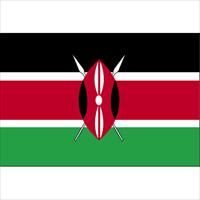KENYA: Agencies appeal for funds as new government named

The Kenya Emergency Humanitarian Response Plan appeal is
a revised version of the one launched in January for $141.9 million by the UN
agencies, the Kenya Red Cross Society (KRCS) and NGOs.
"The revised appeal incorporates the projects of 13
UN organisations and those of 37 international and local non-governmental
bodies," the UN Office for the Coordination of Humanitarian Affairs (OCHA)
said. "Broadly, the projects range from maintenance of IDPs to the resettlement
and restoration of livelihoods."
More than 1,500 Kenyans died and an estimated 350,000
others were displaced following violence in parts of the country sparked by the
disputed 27 December presidential elections. Thousands have since returned home,
but about 202,470 IDPs remained in 235 camps as at April.
Aid agencies estimate that 840,000 people are at risk
from the drought in northern parts of the country, in addition to the 500,000
people affected by post-conflict disruptions nationwide.
The appeal was announced as Kenya's ruling and opposition
parties agreed on a coalition government, consisting of 40 cabinet members and
50 assistant ministers. The agreement followed mediation efforts spearheaded by
former UN Secretary-General Kofi Annan.
Announcing the new cabinet, President Mwai Kibaki said
his government would give priority to the plight of IDPs. "The new cabinet
will prioritise the resettlement of the displaced people so that they can
resume normal lives," Kibaki said.
Javier Solana, EU High Representative for the Common
Foreign and Security Policy, welcomed the formation of the new government.
"Returning to normality is vital not only for the
Kenyan people, who aspire to peace and prosperity, but also for the whole
region - from Sudan to Somalia, including the African Great Lakes Region -
which could not escape the impact of the events in Kenya," Solana said in
a statement.
 Back and Next - Back and Next
Back and Next - Back and Next See Also - See Also
See Also - See Also